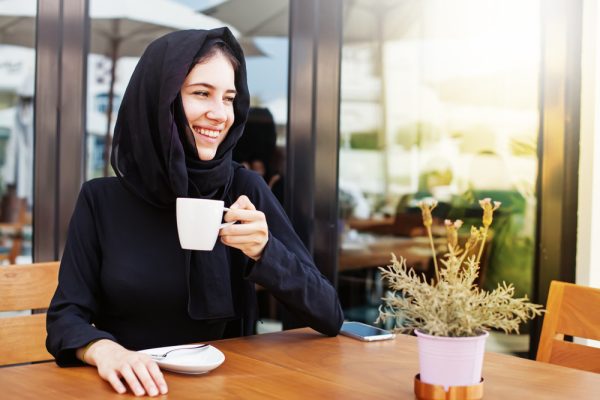In the majority Muslim countries around the world, coffee and tea are popular beverages and often shared during social outings. The prohibitions against intoxicants under the Quran mean that, while friends can’t meet for a beer or a glass of wine, they can certainly meet for coffee and tea. Coffee is a very popular drink in the Muslim world. In some majority Muslim countries, coffee is prepared in ritual form, starting with the roasting of the beans at the table.
Haram or Halal?
Because caffeine is a stimulant, it may make sense that it is haram, or forbidden. However, there are no reference in the Quran prohibiting coffee or tea, both of which contain caffeine in their natural form. Because these beverages are not intoxicants, both coffee and tea are allowed under the dietary restrictions of the Quran.
Historical Connections
Wild coffee beans are believed to have been discovered in the country now known as Yemen in the 15th century. The earliest coffee house ever opened was operated in Istanbul, Turkey and was called the Kiva Han.
Coffee was flourishing in the Muslim world before European citizens were introduced to it. In fact, there were many in Europe who would not drink coffee because it was so closely connected to Islam.
Within a century of the opening of Kiva Han, coffeehouses in the Muslim world were outlawed by Islamic religious leaders. The ideas discussed in coffee houses were disruptive and considered to be dangerous.
Coffee Prohibitions
The only prohibition on coffee today is during Ramadan. Coffee cannot be consumed during the fasting period. For those who have a tolerance for coffee, there is little risk of severe dehydration during the daily fasting period of Ramadan. Of course, coffee intake should be balanced with pure water intake to avoid the unpleasant symptoms of dehydration during the daily fast of Ramadan.
Coffee Production
As noted above, coffee beans were discovered in the Muslim world. In majority Muslim countries today, coffee is
- grown wild in Sudan
- farmed in Indonesia
- ritualized in Turkey
While the western world believes that coffee must be an understory plant grown in mountainous areas, such as the island of Java in Indonesia, there are quite a few coffee varieties that grow well in dry conditions, such as the wild plants that flourish in Sudan.
In regions where the tea plant, camellia sinensis, is easily grown, tea is the more popular beverage. However, countries that grow their own tea, such as Pakistan, have a dedicated number of coffee drinkers and a growing number of coffee shops, ever-expanding the impact of coffee on society.
Coffee as a Source of Rebellion
In the United Kingdom, coffee houses were known as penny universities; a place where men could meet, share new ideas, and engage in political discourse without the violent introduction of intoxicants. These new idea-sharing spaces were dangerous enough that King Charles II tried to ban coffee houses as places of rumor-mongering and social unrest.
In the nation of Egypt, coffee houses were often looked upon with suspicion. While there were public baths and barbershops that encouraged social gatherings with the sexes separated, the coffee house as a space to come together, share ideas and come up with new ones was a unique experience. For most of the political and religious establishment, this intrusion of new ideas was worrying.
Early Egyptian coffee houses were also sources of migration. As these establishments moved from sites near the mosque (to gather the most customers) to neighborhoods, young men from rural areas moved to the cities and found work in coffee houses. This spreading of young minds into spaces of shared, new ideas caused great concern among the established power structures. It was not uncommon to shut down the coffee houses whenever unrest flared up.
Coffee and Ritual
Like the Japanese tea ceremony, the nation of Turkey has legal history and ritual surrounding the making of Turkish coffee. Proper Turkish coffee starts with boiled sugar water and the foam must be scraped away once the coffee grounds are added and the liquid is brought to a boil, twice. If a Turkish woman could not prepare good coffee, she would not be able to get a husband. If a Turkish man could not provide his wife with coffee, it was grounds for divorce!

